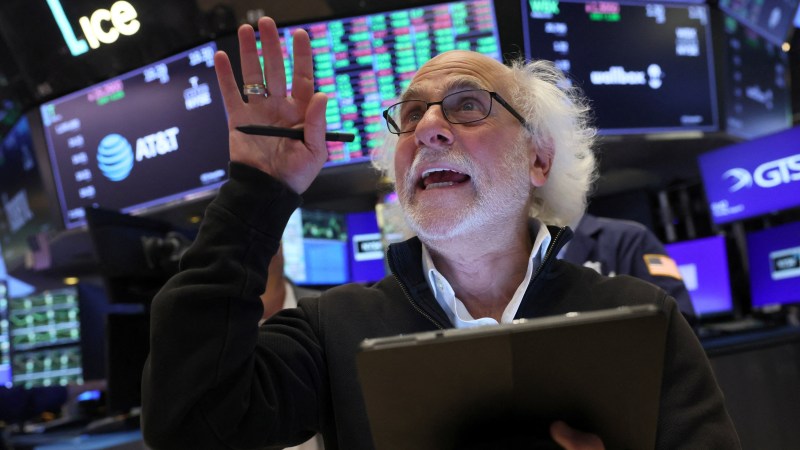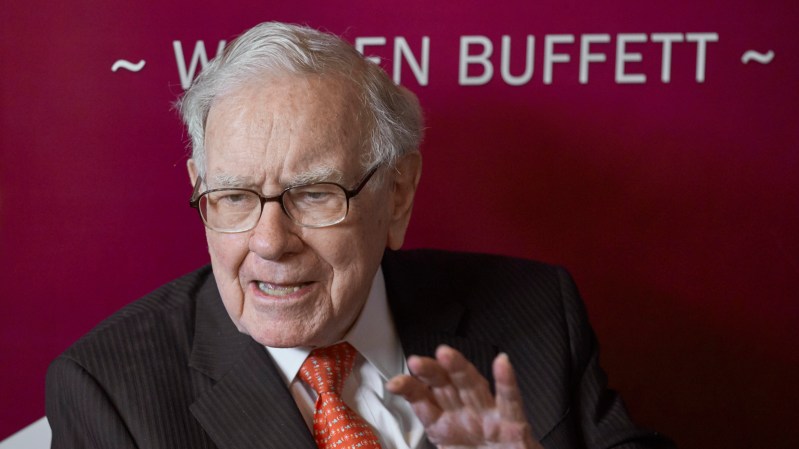US economy still set for soft landing, say fund managers
Investors still expect the US economy to achieve a “soft landing” through low inflation, low interest rates and low unemployment, despite the worst period of global stock market turbulence in two years.
More than three quarters of fund managers surveyed by Bank of America said they did not think that the world’s largest economy would fall into a recession this year, even after recent sell-offs of US equities and the Japanese yen that had been driven by fears of an imminent slowdown in the United States.
Fund managers’ confidence in a “soft landing” was based on expectations of more aggressive monetary easing from the US Federal Reserve, America’s central bank, this year. Nearly two thirds of surveyed investors suggested that the Fed would need to cut interest rates four times over the next twelve months, with the first loosening beginning in September. Lower interest rates help to stimulate growth and keep unemployment down through easier financial conditions.
• Here’s what we learnt from the global market meltdown
Global stocks, the dollar and the yen have broadly recovered after the worst bout of market volatility since 2020 hit asset prices last week. The sell-off was triggered by data showing a slowdown in US jobs growth in July and a decision by the Bank of Japan to raise interest rates for only the second time in 17 years.
Despite investors’ confidence that America will dodge a recession, fund managers’ global growth expectations plunged by 20 percentage points in this month’s survey compared with July. Just under half of respondents said they now thought that the world economy would slow down over the next year, driven by weakness in China. It was the highest proportion recorded this year.
“Core investor optimism has been shaken, not stirred,” Michael Hartnett, chief investment strategist at Bank of America said, adding that August’s trading had led to a “risk-off rotation into bonds, cash and healthcare and out of stocks, Japan, the European Union and tech”.
Fears of a US recession are now the biggest “tail risk” cited by investors, with the probability rising from 18 per cent to 39 per cent this month. An American downturn has replaced global political conflicts as the biggest threat to markets, according to the survey.
“The dominant concerns of investors since 2011 have been eurozone debt, Chinese growth, populism, quantitative tightening and trade wars, coronavirus, inflation and central bank rate hikes, and now recession and geopolitics,” Harnett said.
Central banks are under pressure to restore calm in the markets by lowering interest rates after more than two years of monetary tightening. Last week the Bank of Japan was forced to reassure markets that it would continue with its loose policy “for the time being”.
After hitting a seven-month high last week, the yen has reversed its gains this week and is trading at 147 to the dollar. The depreciating currency has boosted Japanese stocks on the Nikkei index, which have recovered from the 13 per cent one-day plunge suffered last Monday. Two thirds of fund managers said they thought the yen remained undervalued.
Traders also have stepped up their bets on the Fed carrying out a bumper 50-basis-point cut to borrowing costs in September to bring interest rates down to a range of 4.75 per cent to 5 per cent. It would be the first US interest rate cut since the pandemic. More than half of fund managers said that global monetary policy was too restrictive, the highest proportion since the financial crisis in 2008.
Analysts have warned that market sentiment could still be hit by concerns over political risk in the Middle East, with Iran and Israel trading threats and leading to flows of cash into government debt and the dollar, seen as safe havens.
Events in the Middle East have “the potential to at least temporarily disrupt the tentative improvement in global investor risk sentiment this week”, Derek Halpenny, of MUFG, a Japanese bank, said. “Market participants are now waiting to see how Iran will respond to the assassinations by Israel of Hamas leader Ismail Haniyeh and the top military commander of Hezbollah, Fouad Shukr.”
US government debt has risen on the back of investor demand, with yields dropping to a two-year low on two-year treasuries to 3.9 per cent and a 15-month low of 3.85 per cent on ten-year bonds.
• Investors fear the US economy is at a turning point, but is it?
The main driver of risk sentiment this week is the release of the latest figures on American inflation on Wednesday, with any surprise likely to increase volatility and to raise speculation about the Fed’s next move.
Economists expect US headline consumer prices inflation to edge down from 3 per cent to 2.9 per cent over the year and to rise by 0.2 per cent between June and July. “Expectations are for another set of benign prints, but, after the weak jobs report, markets feel a little jumpier around data releases,” Benjamin Schroeder, a senior rates strategist at ING, the Dutch bank, said.






